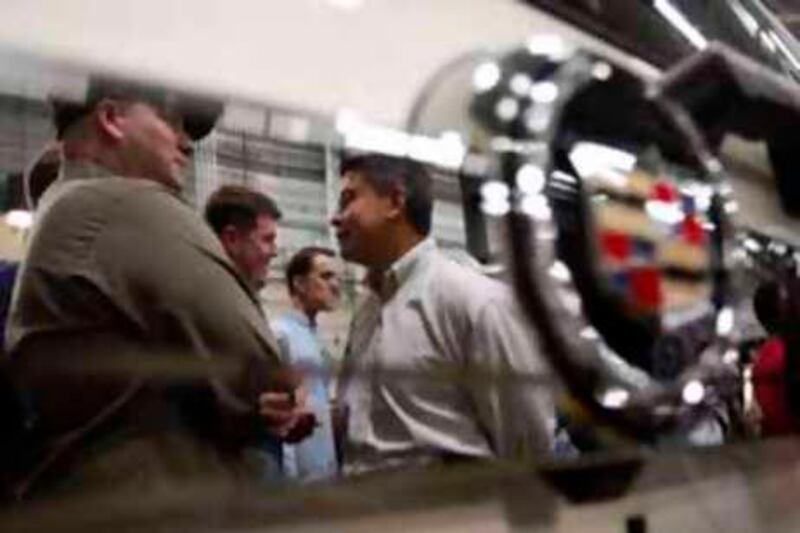WASHINGTON // The three biggest US carmakers have pleaded with Congress for a US$25billion (Dh91bn) lifeline to save their once-proud companies from collapse. Despite pleas from General Motors (GM), Chrysler and Ford, the new rescue plan appeared stalled in Congress, opposed by Republicans and the Bush administration who do not want to dip into the Treasury Department's $700bn financial bailout fund.
Republicans and Democrats from states heavily impacted by the car industry worked in private trying to come up with a compromise that could speed some aid to the carmakers before year's end. It was an uphill fight. "Our industry ... needs a bridge to span the financial chasm that has opened up before us," Rick Wagoner, the CEO of GM, told the Senate Banking Committee. He blamed the industry's predicament not on management failures but on the deepening global financial crisis.
Robert Nardelli, the CEO of Chrysler LLC, told the panel the bailout would be "the least costly alternative" when compared with damage from bankruptcy. Both men said they would be willing to consider slashing their salaries to $1 to show a willingness to sacrifice for federal help. Sympathy for the industry was sparse, however, with bailout fatigue dominating Capitol Hill. Lawmakers bristled with pent-up criticism of the auto industry, and questioned whether a stopgap loan would really cure what ails the companies.
Democratic Sen Christopher Dodd told the leaders of GM, Chrysler and Ford that the industry was "seeking treatments for wounds that I believe to a large extent were self-inflicted." "You're asking an awful lot," Mr Dodd, the panel chairman, said at the close of the session. I'd like to tell that you in the next couple of days this is going to happen. I don't think it is," he said, adding that hundreds of thousands of people would lose their jobs if the companies were allowed to collapse.
Sen Mike Enzi, a Republican, complained that the larger financial crisis "is not the only reason why the domestic auto industry is in trouble." He cited "inefficient production" and "costly labour agreements" that put the US carmakers at a disadvantage with foreign companies. "We've moved aggressively in recent years to position GM for long-term success. And we were well on the road to turning our North American business around," Mr Wagoner said.
"What exposes us to failure now is the global financial crisis, which has severely restricted credit availability and reduced industry sales to the lowest per-capita level since World War II." Failure of the car industry "would be catastrophic," he said, resulting in 3 million jobs lost within the first year and "economic devastation (that) would far exceed the government support that our industry needs to weather the current crisis."
Chrysler's Robert Nardelli, said: "We just cannot be confident that we will be able to successfully emerge from bankruptcy." Chrysler was bailed out by the federal government once before, in 1979, with $1.2bn in loan guarantees. The company repaid the loan, plus interest, ahead of schedule. Back then, former Chrysler CEO Lee Iacocca reduced his salary to $1. Under questioning from Democratic Sen Jon Tester, Ford's Alan Mulally did not join the other two executives in saying he would do the same now. "I sure respect the intent of it, but the most important thing is that we not degrade our ability to be competitive and deliver this plan," Mr Mulally said.
The financial situation for the carmakers grows more precarious by the day. Cash-strapped GM said it will delay reimbursing its dealers for rebates and other sales incentives and could run out of cash by year's end without government aid. In the Senate, Democrats discussed but rejected the option favoured by the White House and Republican lawmakers to let the auto industry use a $25bn loan created by Congress in September, which was designed to help the companies develop more fuel-efficient vehicles, to tide them over financially until President-elect Barack Obama takes office in January.
* AP






